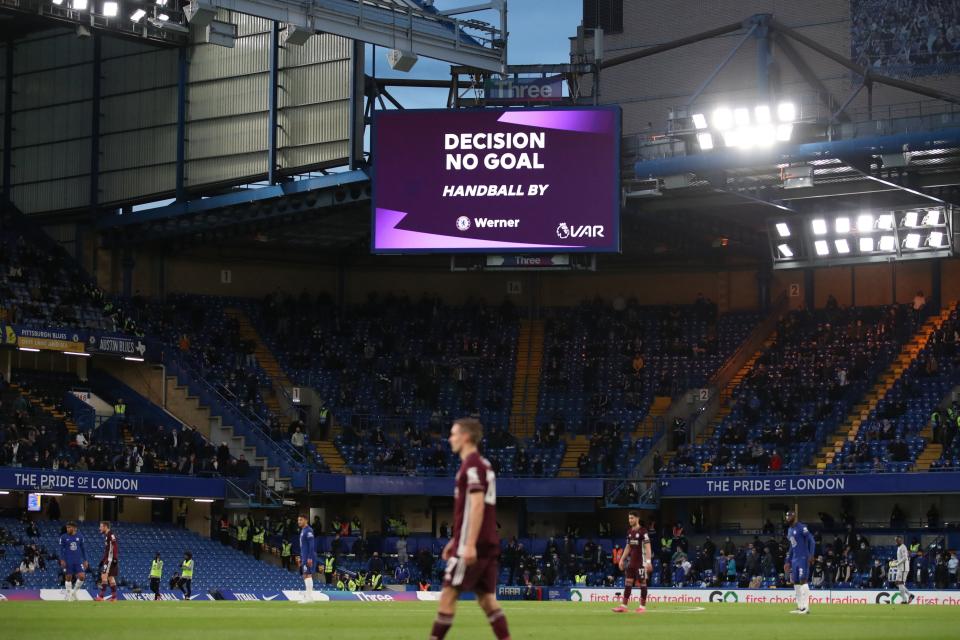Premier League review: Why this most unusual of seasons points to a brighter, fairer future

What fleetingly threatened to be the most unpredictable Premier League season in history ended in the most predictable way possible, with the four richest clubs safely ensconced in the top four and the richest of all, Manchester City, champions again.
The club with the smallest wage bill, Sheffield United, finished dead last and went down alongside the club with the third smallest, West Brom, and another newly-promoted side in Fulham.
In Autumn, when Aston Villa put seven goals past reigning champions Liverpool, Leicester scored five at City and Tottenham six at Manchester United, the conditions felt ripe for the season to throw up shocks equivalent to the Foxes' title win in 2016.
Questions over whether Pep Guardiola could adapt to the squeezed calendar now seem as fanciful as the idea that Jose Mourinho or even Ralph Hasenhuttl might be primed to capitalise on the unusual conditions.
Those heady results eventually gave way to more familiar scorelines, like wins for five of the so-called "big six" yesterday, as the unceasing nature of the campaign came to favour the clubs with the deepest squads.
West Ham and Leicester's Champions League pushes, for example, faded with injuries to key players, while Chelsea scrambled over the line following a season of heavy rotation.
The Hammers and the Foxes were still among the uplifting, odds-defying stories of the season, along with everyone's second team, Marcelo Bielsa's Leeds, but their superb campaigns felt more like victories for coaching than a result of the conditions – although the Hammers surely benefitted from the absence of fans at their stadium.
Richard Masters, the Premier League chief executive, recently pointed out that more teams than ever before topped the table over the course of the campaign – nine – but, really, that was more a consequence of the wildly staggered kick-offs rather than unprecedented competitiveness.
At times, the barrage of televised matches was enough to disengage all but the most committed fanatics and for obvious reasons this season often felt bleaker than any before it.

A seemingly endless succession of low-quality fixtures were completed by physically and mentally exhausted players in empty grounds, often disrupted by maddening VAR decisions and against the backdrop of constant discriminatory abuse on social media. All the while, international football continued in the midst of a global pandemic, against all logic.
Yet, in the circumstances, we should be grateful that the game found a way to continue at all, keeping us engaged, entertained (and in some cases employed), particularly during the harsh winter months of lockdown 2.0.
And as predictable and bleak as it often was, the season may come to be remembered as a turning point, a rubicon moment of sorts for the progression of the elite sport.
The European Super League failure has ensured the "big six" can never again hold the rest of English football to ransom and should help to usher in a more egalitarian model across the continent.
The fiasco has empowered fans and, with the backing of Government and football's governing bodies, supporter groups are taking the fight to the owners of their clubs, not least at London's big three.
The predictability of the final standings is all the more reason to seize this once-in-a-generation chance to reform the game, with change coming in the form of reviews from the Government and Premier League.
The Football Association and the Professional Footballers' Association have also been forced to take further steps towards modernisation this season, with the replacements of FA chairman Greg Clarke and players' union chief Gordon Taylor paving the way for fresh thinking.
As for London's clubs, West Ham and Chelsea can take satisfaction from their seasons, particularly if the Champions League trophy returns to the capital, but the rest underwhelmed.
Spurs and Crystal Palace start the summer needing new managers and major rebuilds, the future of both clubs at a crossroads, while at Arsenal there are doubts over the long-term futures of both the owners and the head coach.
We should be grateful that the game found a way to continue at all, keeping us engaged, entertained - and, in some cases, employed.
Each of the capital's big three might have sacked their managers mid-season but only Chelsea did, and the ruthless dismissal of Frank Lampard for Thomas Tuchel was a turning point for the Blues and an opportunity missed for their rivals.
Had Arsenal or Spurs acted by dismissing Mikel Arteta or Mourinho, respectively, before Chelsea and hired the out-of-work German, the outlook of this season may have been very different.
The majority of top-flight clubs now face a challenging summer in a Covid-depressed market, although it is telling that City, United and Chelsea are being linked with the likes of Harry Kane and Erling Haaland – another reminder, if needed, of the League's vast inequality.
The hope is that clubs can finally welcome back fans for good at the start of next season and with them a wind of change that could eventually lead to a fundamentally fairer, more competitive and more accountable Premier League.
Read More
West Ham report card, 2020/21 season: David Moyes has worked wonders - now bring on Europe

 Yahoo Sport
Yahoo Sport 





































